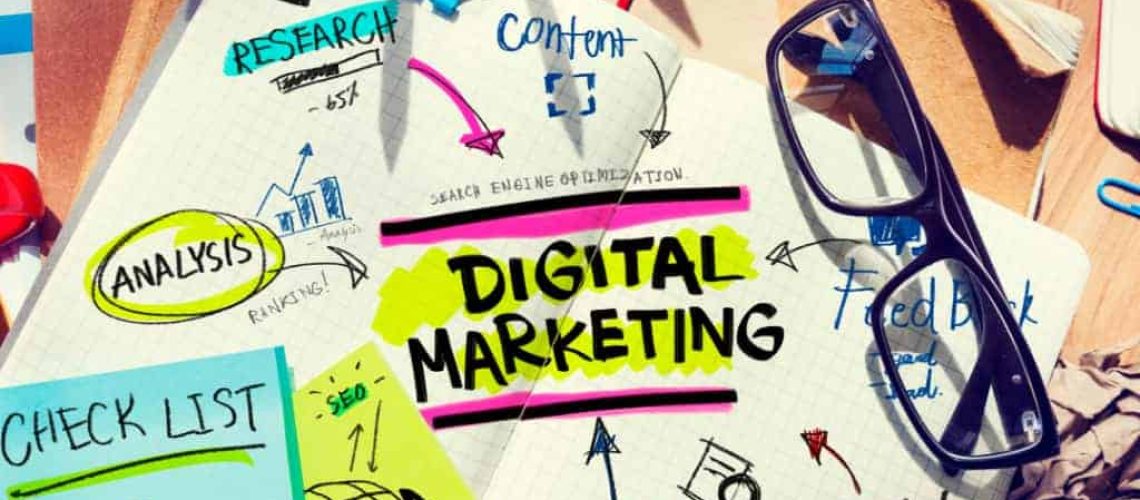In the age of a new generation of web, digital marketing is a necessity. It is impossible for internet searches to find you without it! So what exactly is digital marketing and how does it work?
What’s Digital Marketing?
Digital marketing by definition is: the marketing of products or services using digital technology, mainly on the internet, but also including mobile phones, display advertising and any other digital medium. It is defined by the use of multiple digital tactics and channels to connect with customers where they spend a huge amount of time: the internet. The digital marketers who know the process well are able to use different digital marketing tactics to support their ultimate goals. For example, a content marketer can design a multitude of blog posts that are meant to generate leads for a new business. That same company’s social media marketer may take these blog posts and promote them through paid and organic posts on the company’s social media accounts. All while this is happening, the email marketer may create an email campaign that is sent to those who interacted with the blog in the first place.
Digital Marketing Examples
Pay Per Click (PPC) – PPC is an avenue to drive traffic to you site by paying a publisher (search engine, website owner, etc) every time your ad is clicked. The type of PPC that is most well known is Google Ads. Google Ads allow you to pay for the top slots on a search result page. Google is paid for each time your ad is clicked on. Other channels of PPC are Facebook Ads, Sponsored Messages on LinkedIn and Twitter Ad Campaigns.
Social Media Marketing – The type of digital marketing is exactly what it sounds like, although it may include aspects you never thought about. This route promotes your brand and content on social media platforms to increase awareness, raise your conversion rate and generate more traffic. These social media platforms include: Facebook, LinkedIn, Instagram, Pinterest, Twitter and Snapchat.
Content Marketing – This is a form of marketing that involves the creation and sharing of online material including: blogs, videos and posts. Content marketing is not used for promoting a brand, but is utilized for sparking interest in the brand’s services or products. Before awareness, a client may have a need, but they are unaware a solution exists. When they find that solution, the client will research to educate themselves. At this point, the client comparing different vendors, looking for the highest quality choice. When that choice is made, the client moves forward with the transaction. The return on investment for content marketing can be substantial if it is done correctly.
Search Engine Optimization (SEO) – This is for optimizing your website to rank higher on search result pages. There are multiple ways to approach SEO; On page SEO, Off page SEO and technical SEO. Each process focuses on an area of your site that can affect it’s rankings. On page SEO includes research of keywords for their volume in internet users’ searches. Off page SEO focuses on the aspects not on your site that can affect it’s position, including inbound links from other publishers. Technical SEO is the optimizing of the back end of your site, finding ways to shorten the loading time, compressing images and optimizing the CSS files of the site.
Email Marketing – Email marketing is used as a way of communication with an audience. Email is often used to send newsletters, discounts and upcoming news about the business. The types of email campaigns used are blog subscription letters, follow-up emails to visitors who downloaded something, welcome emails, holiday promotions or emails meant for customer nurturing.
How Long Will Results Take?
With digital marketing, it can often seem like you are seeing results much faster than offline marketing. This is due to the Return On Investment (ROI) is easier to measure and track. Honestly it depends on the scale and effectiveness of the strategy that has been implemented. If you are using paid advertising in your strategy, it is likely you will begin seeing results earlier than 6 months! On the other hand, building an organic strategy may take up to 6 months to show results. The organic strategy does have a better long-term result, even if it takes longer to get to the results you are looking for.
I’m Ready, Are You?
There is no doubt while reading this post, you thought of a few areas you need to work on for the digital marketing portion of your business. We are ready to take on the competition for you! Give us a call today to set up an appointment with our Digital Marketing specialists.


